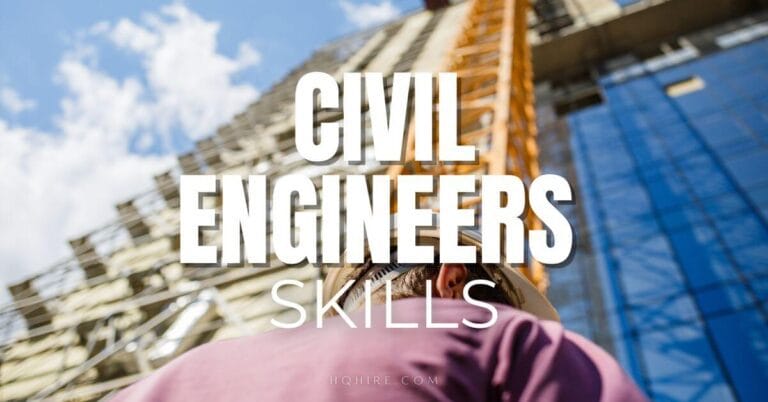Industrial engineering plays a vital role in optimizing processes and improving efficiency in various industries. Industrial engineers analyze complex systems and design solutions to enhance productivity, reduce costs, and ensure quality.
To excel in this dynamic field, it is essential to possess a specific set of skills. In this article, we will explore the duties, characteristics, personality traits, and skills required to become a successful industrial engineer.
Duties and Responsibilities of an Industrial Engineer
Industrial engineers are responsible for analyzing and improving workflow and productivity in different settings. They identify bottlenecks, streamline processes, and implement strategies for cost optimization. Effective project management, data analysis, and the ability to assess and improve operational performance are key aspects of an industrial engineer’s role.
Characteristics of a Successful Industrial Engineer
Successful industrial engineers possess specific characteristics that contribute to their effectiveness. They demonstrate analytical thinking, problem-solving skills, and attention to detail when assessing complex systems. Adaptability to changing environments and the ability to work collaboratively with cross-functional teams are also critical traits.
Personality Traits Needed for an Industrial Engineer
To excel as an industrial engineer, certain personality traits complement the role. Being a critical thinker helps in identifying inefficiencies and proposing innovative solutions. Strong communication skills facilitate effective collaboration and the ability to convey complex ideas. Creativity, resilience, and a passion for continuous improvement are essential for driving positive change.
Technical Skills Required to be an Industrial Engineer
- Data Analysis and Interpretation:
- Ability to collect and analyze data to identify trends and patterns.
- Utilizing statistical tools and software to draw meaningful insights.
- Process Optimization and Lean Principles:
- Applying lean principles and methodologies to eliminate waste and improve efficiency.
- Designing and implementing streamlined processes and value stream mapping.
- Statistical Analysis and Modeling:
- Proficiency in statistical techniques for process improvement and decision-making.
- Utilizing statistical software for modeling, forecasting, and simulation.
- CAD and Simulation Software:
- Knowledge of computer-aided design (CAD) software for layout design and optimization.
- Using simulation software to model and evaluate system performance.
- Quality Control and Six Sigma:
- Implementing quality control techniques to ensure product and process excellence.
- Applying Six Sigma methodologies to reduce defects and improve overall quality.
Interpersonal Skills Required to be an Industrial Engineer
- Effective Communication and Presentation:
- Communicating ideas and solutions clearly and concisely to stakeholders.
- Presenting complex information in a compelling and understandable manner.
- Collaboration and Teamwork:
- Working effectively with cross-functional teams to achieve common goals.
- Building relationships and fostering cooperation among team members.
- Leadership and Influencing Skills:
- Demonstrating leadership qualities to guide and motivate team members.
- Influencing stakeholders to embrace process improvements and changes.
- Project Management:
- Planning, organizing, and executing projects within defined timelines.
- Coordinating resources, managing budgets, and ensuring project success.
- Problem-Solving and Decision-Making:
- Applying logical thinking and systematic problem-solving approaches.
- Making informed decisions based on data analysis and critical evaluation.
Professional Skills Required to be an Industrial Engineer
- Time Management and Organization:
- Effectively managing time to meet project deadlines and prioritize tasks.
- Organizing resources and maintaining an efficient work schedule.
- Cost Analysis and Financial Management:
- Conducting cost analysis and identifying opportunities for cost reduction.
- Managing budgets and ensuring optimal utilization of financial resources.
- Supply Chain Management:
- Understanding supply chain dynamics and optimizing material flow.
- Collaborating with suppliers and ensuring efficient logistics.
- Risk Assessment and Mitigation:
- Identifying potential risks and developing strategies for risk mitigation.
- Implementing contingency plans to minimize disruptions.
- Continuous Improvement and Innovation:
- Embracing a culture of continuous improvement and seeking innovative solutions.
- Staying updated with industry trends and advancements to drive innovation.
What Does It Mean To Become a Industrial Engineer
Becoming a successful industrial engineer requires a diverse range of skills, encompassing technical expertise, interpersonal abilities, and professional competencies. By mastering these skills, you can enter the field of industrial engineering and excel in optimizing processes, improving productivity, and driving positive change.
Whether it’s analyzing data, collaborating with teams, or managing projects, the skills outlined in this article are instrumental in achieving success as an industrial engineer.
Embrace these skills, strive for continuous improvement, and make a lasting impact in the field of industrial engineering.
Job Description Example
Industrial Engineer Job Description
We are seeking an experienced and innovative Industrial Engineer to join our dynamic team. As an Industrial Engineer, you will play a pivotal role in optimizing our manufacturing processes and increasing operational efficiency.
Your expertise will be instrumental in developing and implementing strategic plans to streamline production, minimize waste, and enhance overall productivity.
If you possess a keen analytical mind, exceptional problem-solving skills, and a passion for continuous improvement, this is an exciting opportunity to contribute to our organization’s success.
Responsibilities
- Conduct comprehensive time and motion studies to identify bottlenecks, inefficiencies, and areas for improvement within the manufacturing process.
- Develop and implement efficient production layouts, utilizing advanced techniques such as Lean Manufacturing and Six Sigma methodologies to optimize workflow and minimize material handling.
- Collaborate with cross-functional teams to design and implement new production systems, utilizing cutting-edge technologies and automation to maximize productivity.
- Perform statistical analysis and utilize mathematical modeling to forecast production capacity, analyze production data, and recommend strategies for process optimization.
- Identify and evaluate opportunities for cost reduction and waste elimination, including the implementation of sustainable practices and environmentally friendly solutions.
- Analyze and improve ergonomics and safety protocols to enhance employee well-being and minimize workplace accidents.
- Conduct feasibility studies for new projects, assessing technical and economic viability, and providing recommendations for project implementation.
- Monitor and evaluate key performance indicators (KPIs) related to production efficiency, quality control, and overall operational performance, proposing and implementing corrective actions as necessary.
- Stay abreast of industry trends, advancements, and emerging technologies in industrial engineering, and proactively identify opportunities to incorporate them into our operations.
Key Requirements
- Bachelor’s degree in Industrial Engineering or a related field; Master’s degree preferred.
- Proven experience in industrial engineering, preferably in a manufacturing or production environment.
- In-depth knowledge of Lean Manufacturing principles, Six Sigma methodologies, and statistical analysis techniques.
- Proficiency in using computer-aided design (CAD) software and manufacturing simulation tools.
- Strong analytical skills with the ability to gather and interpret data, identify trends, and draw meaningful insights.
- Excellent problem-solving abilities, with a track record of implementing innovative solutions to complex operational challenges.
- Familiarity with project management methodologies and the ability to effectively lead and coordinate cross-functional teams.
- Strong communication and interpersonal skills, with the ability to convey technical concepts to both technical and non-technical stakeholders.
- Detail-oriented mindset with a commitment to precision and accuracy in all tasks.
- Continuous improvement mindset and a passion for staying updated with the latest advancements in industrial engineering.
We’ve one question…
Did we miss out on any critical skills needed?
Let us know in the comments below!
If you are looking for more careers, come take a look at this list of careers now!
In this comprehensive list of careers, you can find all other types of career with their career education requirement and mode of work.
Read Also:
- 21 Common Performance Appraisal Meeting Questions (with Example Answers)
- How to Prepare for an Online Meeting with Your Boss (Effective Meeting Strategy)
- 20 Best Skip Level Meeting Questions To Ask (2-Way Communication with Bosses and Managers)
- How to Prepare for a Performance Appraisal Meeting (Acing Your Review with Confidence)
- How to Prepare for a Skip-Level Meeting as an Employee (with Example Questions)
Join over 11,000+ achievers who are committed to achieving their career goals!






